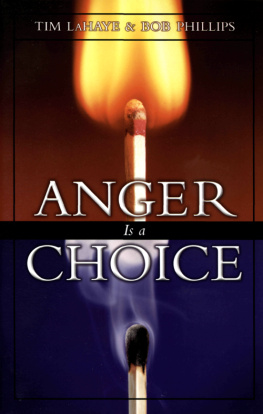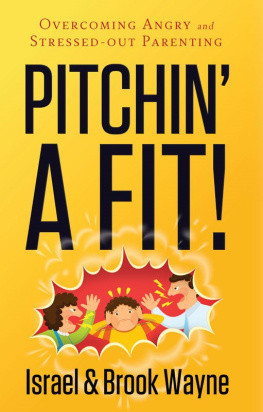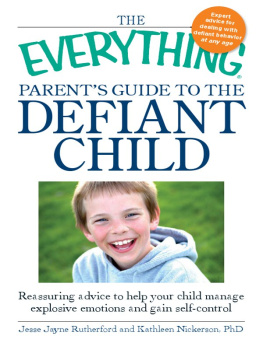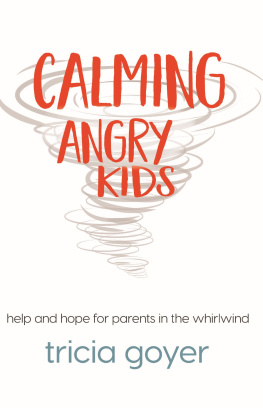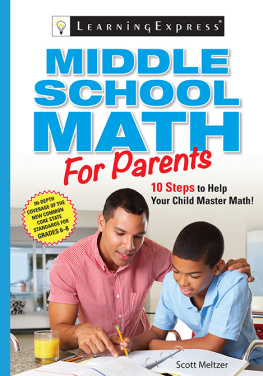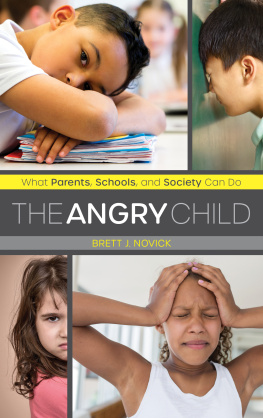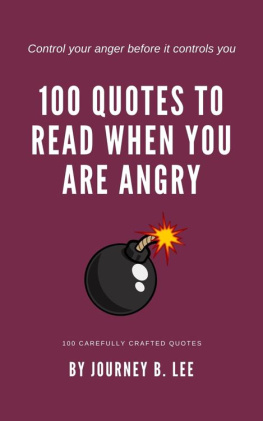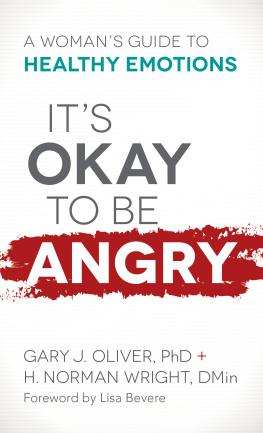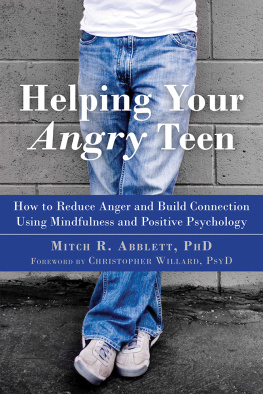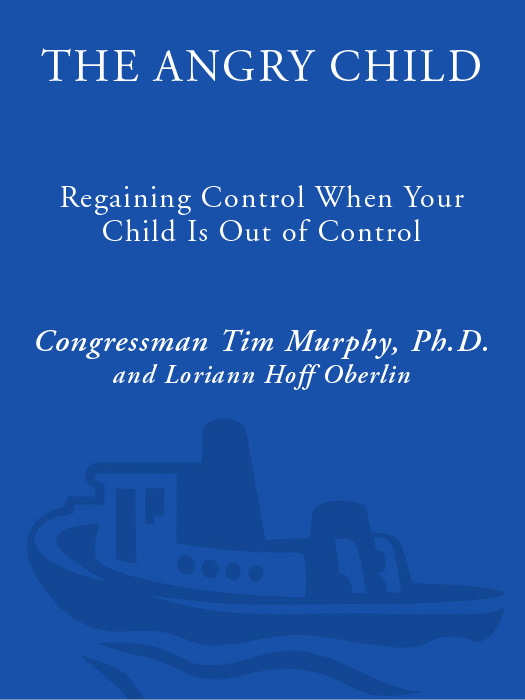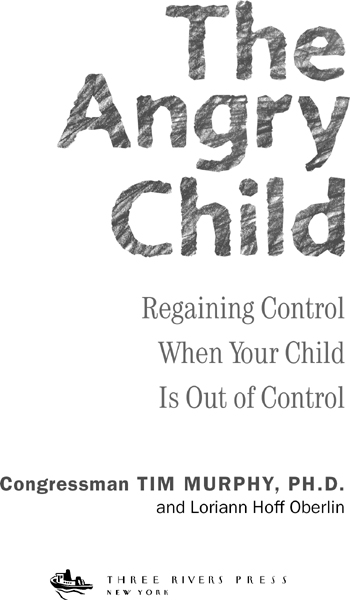All the anecdotes in the book are based on real-life experiences. They are adapted from stories told to me by parents and children in my psychological practice, from lectures and workshops, or through my radio and television appearances. However, all of the names used in this text are fictitious in order to protect the confidentiality essential for all clients. Identifying information and geographic location have been changed, and stories have been altered where necessary to protect the individuals and families involved. In some instances, composites of two or three persons have been used to obscure them and to clarify the relevant issues. Any similarities between the anecdotes presented and any actual person, living or deceased, is entirely coincidental.
To Nan and Bevin
Acknowledgments
T HIS BOOK took some time in coming to the shelf. It went through three major stages in the process, and at each stage several people played important roles, both in helping to shape my ideas and in keeping me motivated.
The first stage involved exploring my roots in psychology, medicine, and child development. People like Dennis Maceoko and Jim Goodwin from Wheeling Jesuit University; Janice Gibson and Mark Strauss of the University of Pittsburgh; Heidi Feldman, M.D., a pediatrician at Childrens Hospital of Pittsburgh; Mark Scherr, M.D., a neurologist with Rainbow Babies and Childrens Hospital in Cleveland; and Bradley Bradford, M.D., a pediatrician at Mercy Hospital of Pittsburgh; all served as mentors through these years. Of particular note is Ron David, M.D., a neonatologist formerly with the John F. Kennedy School at Harvard University, and now working in public health in Washington, D.C. Ron and I spent many evenings talking about research regarding children and finding ways to create a brighter future for them in this troubled world.
Of course, what good is scientific knowledge if you cant put it into terms a parent can understand? Thats where the second stage of this book grew. Friends from the broadcast and print media have continued to ask me questions such as, So what does that mean? which forced me to learn how to make those translations. Although there were many who played a role here, I have to particularly thank a few. Working on talk shows, TV news segments, and special programs with Patrice King Brown, Jan Getz, Drew Moniot, Bruce Kaplan, Mary Flynn, and Paul Kelvyn of KDKA-TV taught me the ropes and gave me an opportunity to reach many families around the country. Phil Musick of WTAE Radio was not only a talk-show host, but he shared his microphone weekly with me for years, inviting callers to dial in and relying upon my insight. As an author himself, Phil encouraged me to put my ideas into print. Television producer Lynne Squilla continues to ask me probing questions about children, and this inspires me to learn more. Im pleased to have played a part in some of her award-winning productions. And I thank WTAE-TV for including me in their Success By Six segments.
I cant forget about Michael Fields, formerly of WQED-TV, who encouraged me to pursue my political and psychology goals. And speaking of politics, I owe a great debt of thanks to Bob Jubelirer, the President Pro Tempore of the Pennsylvania Senate. Its a pleasure and inspiration to work side by side with someone who is so passionate about family issues, and who now encourages me to translate that scientific knowledge into laws and public policy. Judge Max Baer with the Allegheny County courts gave me much guidance on issues involving child custody and divorce.
The final stage of this project involved getting it into print. Piles of notes from lectures, professional journals, parenting articles; from encounters with families in my psychology practice; and from speaking engagements were compiled into outlines. This meant late nights at the computer keyboard long after my wife and daughter were asleep. Many portions of this manuscript were written just before I decided to run for the state senate.
The project then sat in a box until my coauthor, Loriann Hoff Oberlin, took an interest in it. With my senate duties demanding so much of my time, the manuscript would have remained in that box were it not for her diligence in updating it and crafting it into this finished product. I am very grateful to her for recognizing it was time to bring this book to the shelf and for seeing it through to completion. A special thanks to Jeff Herman for shepherding our proposal to a publisher, and to Pam Krauss at Crown Publishing/Random House for her skillful editing and guidance.
But through all of these stages runs a river of determination and confidence taught to me by my own parents. They had it rough, raising eleven children on a meager income. As a family, we certainly had our share of fights, laughter, disappointments, and joy over the years. But the devotion of my parents to their children, and their faith in God, continues to inspire me to help others overcome obstacles in their lives.
Dr. Tim Murphy
Contents
Part 1
Chapter One
Chapter Two
Chapter Three
Chapter Four
Chapter Five
Chapter Six
Part 2
Chapter Seven
Chapter Eight
Chapter Nine
Chapter Ten
Chapter Eleven
Introduction
I TS HARD to pinpoint the exact moment the change occurs. One day your otherwise sunny child is merely prone to the occasional nasty outburst, and the next a permanent storm cloud seems to have taken up residence over her head. Small social problems or household disagreements escalate into major battles that leave all participants wounded and wary. Your once predictable child has become more than temperamental; you never know when the next meltdown will occuror where. And the effort of trying to control these outburstsor avoid them at any costmay be impacting on how you deal with others in your family, social circle, and your childs school.
If you have a child whose anger and rage holds your family emotionally hostage, embarrasses you in public, or intimidates you and others with threats of violence or vicious comments, you know exactly what Im talking about. It may come in the form of a toddlers tantrums or a teenagers tirade, in silent refusals or violent rage. Whichever form it takes, this anger is destroying our children and our families, and its becoming epidemic.
You probably know how difficult it is to convince friends and family that your four- or fourteen-year-old is terrorizing your house. But its true. Anger, especially out-of-control anger, is without a doubt one of the most demanding situations parents regularly face. Most children have occasional outbursts, but sooner rather than later they calm down and life goes on. A single outburst does not make an angry child. Unchecked, however, continued anger is a sign that something is terribly wrong and must be addressedsoon.
Does this mean that todays difficult four-year-old will turn into tomorrows headline maker? Not at all. But parents need to know that unless the tide of anger is turned, an angry child will grow into the angry adult who perpetuates an unhealthy cycle of active abuse or passive aggression. Its never too early to start helping your child bring his or her anger under control. Adopting the strategies that follow will aid you in doing exactly that.


